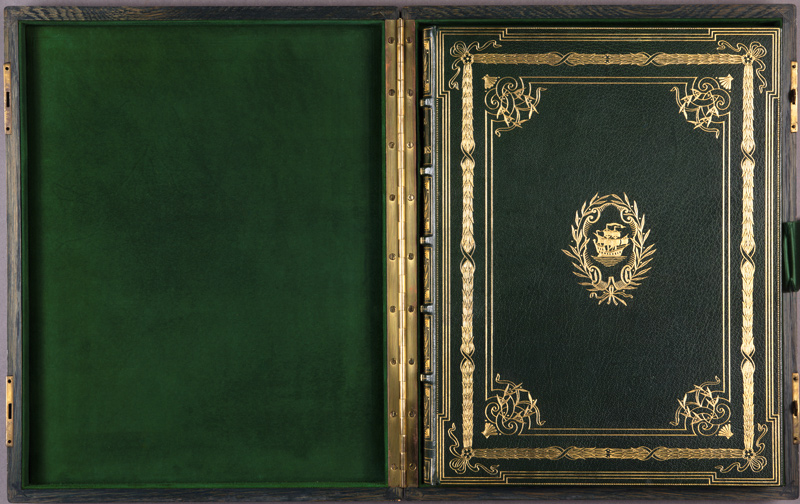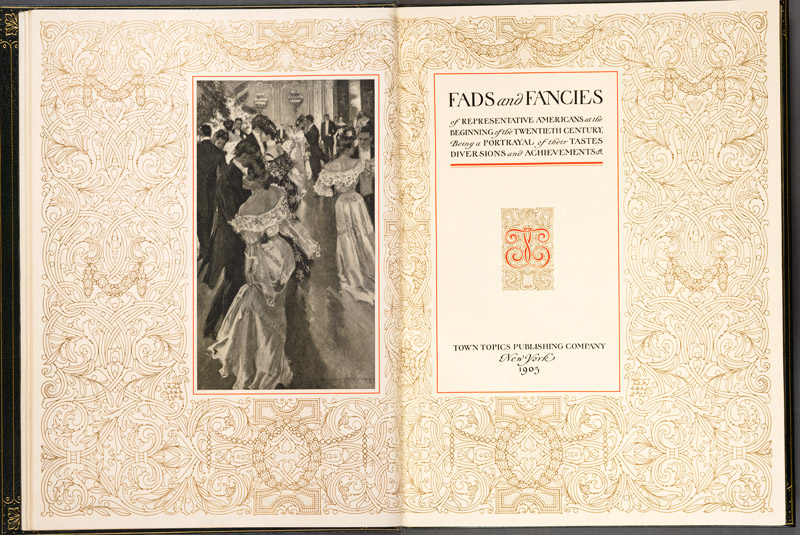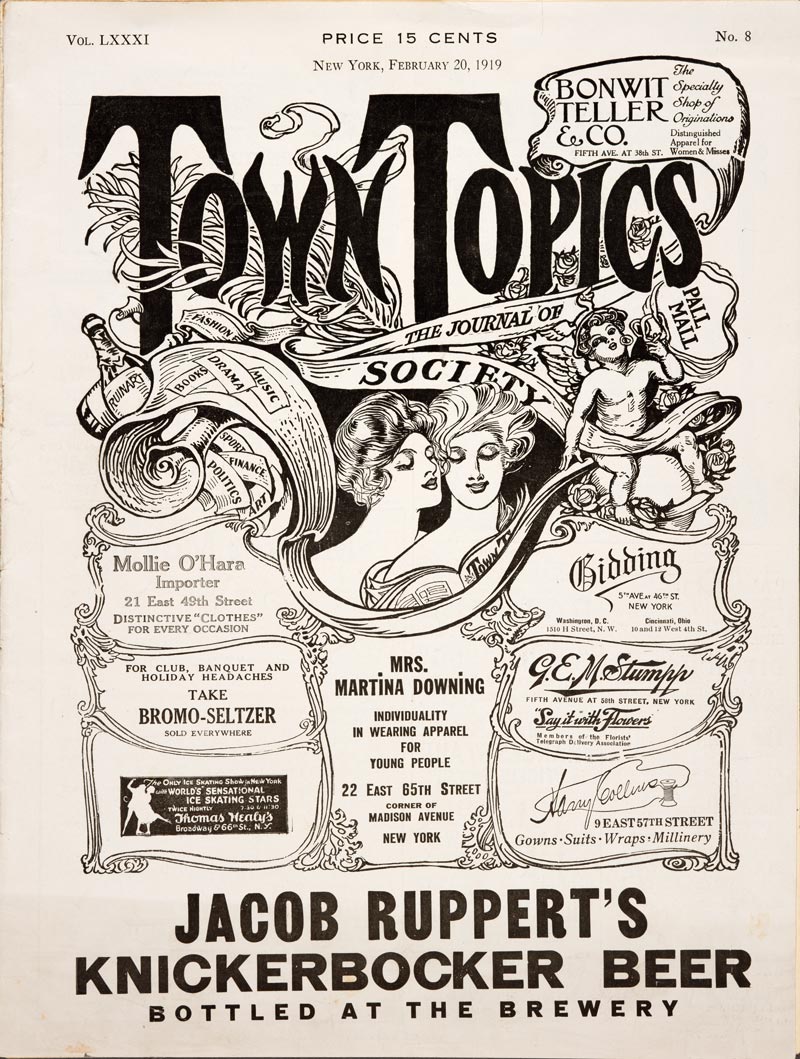
Beyond the cover (and oak box) of this volume is a tantalizing tale about Arabella Huntington. Fads and Fancies of Representative Americans. New York: Town Topics Publishing Company (1905). The Huntington Library, Art Collections, and Botanical Gardens.
The title of this tome lives up to its packaging. Inside the glowing patina of an oak box is an oversized book covered in a handsome, green morocco binding decorated with a profusion of gold-tooled ornamentation: Fads and Fancies of Representative Americans at the Beginning of the Twentieth Century: Being a Portrayal of Their Tastes, Diversions, and Achievements. The book contains fawning profiles of 86 of the most prominent citizens of the day, including Theodore Roosevelt, assorted Vanderbilts, John Jacob Astor, Collis P. Huntington, and Collis’ nephew Henry E. Huntington. At eight pages long, Collis P. Huntington’s tribute is by far the longest in the book, exceeding that of the sitting president, who rated the book’s average of a relatively skimpy two pages. And therein lies a clue to the sensational scandal concealed between the lines of the book’s innocuous text.

Title page of Fads and Fancies, 1905. The Huntington Library, Art Collections, and Botanical Gardens.
Fads and Fancies was published in 1905 by the Town Topics Publishing Co., headed by the colorful Col. William D’Alton Mann, a Civil War hero, inventor, self-made millionaire, and publishing magnate. His tabloid newspaper, Town Topics: The Journal of Society, was hugely popular. Its most hotly anticipated feature was its infamous “Saunterings” section, gossipy accounts of the doings of the day’s smart set made even more titillating by use of the “blind item.” Have you ever read a gossipy nugget containing wink-wink references like “a certain hard-partying ingénue” or “an unstable, aging British rocker”? If so, you can thank Col. Mann, who is often credited with the invention of the practice.

Front cover of an edition of Town Topics: The Journal of Society(Feb. 20, 1919). New York: Town Topics Publishing Company. The Huntington Library, Art Collections, and Botanical Gardens.
Other well-known personalities faced a more aggressive form of scrutiny. One representative of Town Topics threatened to expose financier Edwin Post’s dalliances with chorus girls and ingénues unless he paid a $500 “subscription” (about $13,000 today) to a forthcoming book to be titled America’s Smart Set. Unable or unwilling to come up with money, Post eventually went to the district attorney, who promptly brought suit against the publication.
Norman Hapgood, editor-in-chief of the respected news magazine Collier’s Weekly, printed a series of scathing attacks against Town Topics. Col. Mann fired back by bringing a criminal libel suit against Hapgood and Collier’s. The suit became a national sensation and its proceedings were reported in detail in newspapers across the country, striking cold fear in the hearts of many of the era’s social luminaries who feared their reputation-killing indiscretions might be revealed at the trial.
This dread probably compelled one of the country’s wealthiest women, Arabella Huntington, to flee abruptly to Europe to avoid a likely court subpoena after it was revealed at the trial that in 1903 she had paid Mann $10,000 (about $250,000 today) for a subscription to Fads and Fancies. To put this sum in context, eight years later Henry E. Huntington would pay the record price of $10,000 for John Winthrop’s Declaration of Former Passages of 1645, the first historical narrative printed in English-speaking North America. One could reasonably surmise that Mann’s vast network of paid informers and spies had uncovered particularly sensitive information about Arabella and Collis, and this is what led her to pay far more than the usual $1,500–$2,500 doled out by other similarly victimized Town Topics subscribers. What was Arabella so anxious to conceal? Perhaps we will never know.
Many thanks to Shelley Bennett for the loan of her exhaustive research notes on the Town Topics imbroglio, which she touched on in her outstanding book The Art of Wealth: The Huntingtons in the Gilded Age (Huntington Library Press, 2013). For more on the book, read this archived post on Verso: A Wealth of Information.
Anita Weaver is a library assistant in the rare books department at The Huntington.
